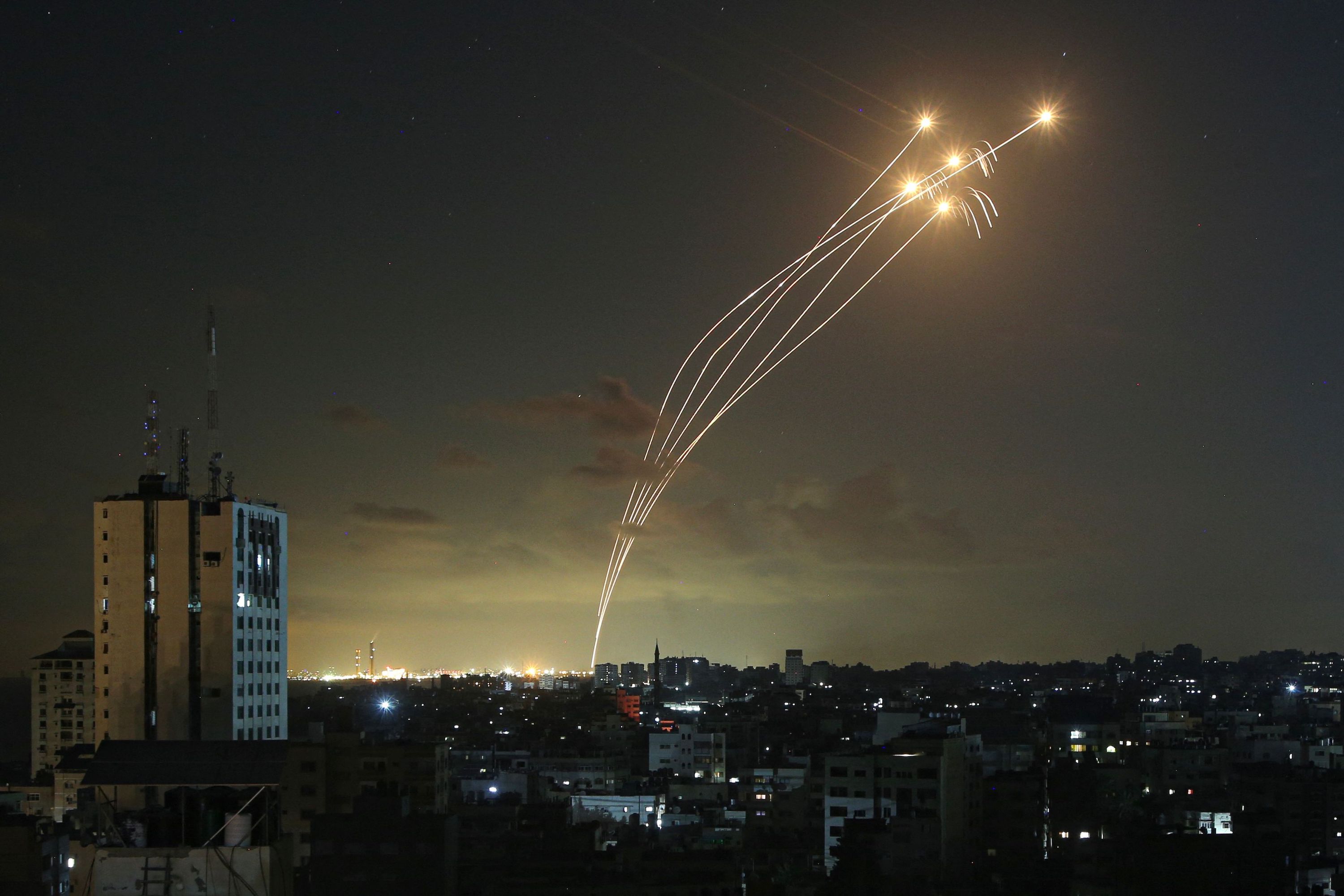On Saturday, Hamas launched a highly coordinated raid into Israel that caught the Israel Defense Forces (IDF) completely unprepared, breaking through the barrier walls that had sealed Gaza from the rest of Israel. The operation was wildly successful from a tactical perspective. As the barbarity of Hamas’ operations continues to be made clear, the United States should remain sober and clear-eyed on its most important objective: preventing the war from spilling beyond Israel.
Within hours of the attack, President Joe Biden unequivocally declared that in this “moment of tragedy, I want to say to [Israel] and to the world and to terrorists everywhere, the United States stands with Israel.” The following day, Secretary of Defense Lloyd Austin announced that a carrier strike group would be ordered to the region and that the U.S. would soon be “providing the Israel Defense Forces with additional equipment and resources, including munitions.”
Israel was violently attacked by Hamas and by any standard has the right to defend itself. It is a wealthy, sophisticated, and democratic country and America’s partner in the Middle East. It is reasonable that we would assist the Israelis in defending themselves. But we also need to be clear-eyed on the predicament Israel finds itself in, and how difficult and time-consuming it will likely be for the country to end the war and recover.
First, the painfully obvious: Israel suffered the most colossal intelligence failure in its history. In key ways, it was greater than the surprise Egyptian/Syrian invasion in 1973’s Yom Kippur War. Israel was barely 25 years old as an official state and didn’t have mature intelligence systems in place. On October 7, 2023, however, the Shin Bet and Mossad were widely believed to have been the best intelligence agencies in the Middle East. Though there were warnings issued prior to the attack, they were not sufficiently strong or the leadership in Jerusalem and the army were not sufficiently convinced.
Regardless of which it was, on the morning of the attack, the Israeli intelligence services were caught napping and the IDF was wholly unprepared. Hamas had pulled off a feat rare in warfare: by keeping its planning and initial execution hidden from Israel, they were able to achieve virtually every tactical objective they had set out on day one.
Hamas executed a sophisticated, highly coordinated plan that featured the firing of more than 2,000 rockets into multiple points in Israel, saturating the famous Iron Dome air defense system, ensuring many of the projectiles found their mark. Simultaneously, Hamas launched attacks at sea by speedboats along the Israeli shoreline, sent small commando teams over the wall in small-engine hang gliders, inserted other fighters through tunnels, and dropped bombs on Israeli defensive positions and observation posts via drones (as is currently happening in the Russia-Ukraine War).
Once the initial wave neutralized the IDF’s forward positions along the Gaza border, Hamas used bulldozers to penetrate the wall and sent thousands of fighters streaming into Israel proper, many in pickup trucks, four-wheelers, or other modes of transport. They had very clear tactical objectives for various teams. At least 20 towns and locations were attacked.
Some militants were tasked with causing terror among the public by indiscriminately killing civilians in the streets or their houses. Others attacked police stations and forward army bases. Other teams were apparently ordered to seize large numbers of hostages and return them to hiding locations back within Gaza. As of early morning on Tuesday, upwards of 1,500 Hamas fighters had been killed by the IDF. But the damage had been done.
Over 1,000 Israeli citizens have been killed and thousands more wounded. An unknown number of civilians and soldiers—some of whom are American—have been kidnapped. In response, the Israeli Air Force has been pummeling targets inside the Gaza strip, killing many hundreds of Palestinian civilians along with Hamas fighters. There is enormous pressure on Israeli Prime Minister Benjamin Netanyahu to launch a ground assault into Gaza to rout and destroy Hamas, but it will take time to prepare his army and formulate a plausible plan of attack.
Meanwhile, there have already been skirmishes between Israel and Hezbollah across the border in Lebanon. On Tuesday night, Israeli tanks fired at targets in Syria, and mortar shells were fired at Israel from unknown sources inside Syria. So far, the situation hasn’t escalated further. The United States must do everything in its power—via diplomacy and deterrence—to ensure this fight does not expand beyond Israel and Hamas.
With anger at Iran growing in the United States (and many suggesting Tehran planned and resourced the attack by Hamas), the risk of a wider regional conflict is rising. As bad as this situation is in Israel, it will be significantly worse if the war spreads to include additional parties.
America has just ended one two-decade war in the region and still has a lingering presence in two others (Iraq and Syria). We should continue to help Israel where it makes sense, but our highest priority is protecting our national security and economic prosperity by avoiding the outbreak of any new wars.
Daniel L. Davis is a Senior Fellow for Defense Priorities and a former Lt. Col. in the U.S. Army who deployed into combat zones four times. He is the host of the Daniel Davis Deep Dive show on YouTube.
The views expressed in this article are the writer’s own.

